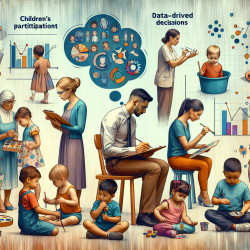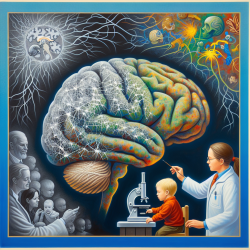Introduction
In the ever-evolving field of education and therapy, practitioners are continuously seeking innovative methods to enhance their skills and improve outcomes for their clients. A recent research article titled A New Model of Learning: Environmental Health in a Global World presents a groundbreaking approach that integrates systems thinking with environmental health education. This model, developed at New York University, offers valuable insights that can be applied to various fields, including online therapy services provided by companies like TinyEYE.
Understanding the Model
The research outlines a participatory educational model where students are engaged in understanding complex environmental health challenges. This approach involves systems thinking, where students create systems maps to visualize interactions leading to adverse health outcomes. By identifying leverage points, students can propose interventions that provide significant health benefits.
Practitioners in the field of online therapy can draw parallels from this model by adopting a systems-thinking approach in their practice. This involves understanding the complex interactions between various factors affecting a client's well-being and identifying key areas where interventions can have the most impact.
Application in Online Therapy
For online therapy practitioners, implementing systems thinking can involve:
- Identifying environmental and social factors impacting clients' mental health.
- Creating a comprehensive map of these factors to visualize their interactions.
- Developing targeted interventions that address key leverage points.
- Collaborating with clients to explore potential unintended consequences of interventions.
- Advocating for innovative strategies that improve client outcomes.
By integrating this model into their practice, therapists can enhance their ability to address complex client issues holistically, leading to more effective and sustainable outcomes.
Encouraging Further Research
The success of the educational model at NYU demonstrates the potential benefits of systems thinking in addressing environmental health challenges. Practitioners are encouraged to delve deeper into this research and explore how similar methodologies can be applied to their specific fields.
Engaging in further research and professional development can provide therapists with the tools needed to adapt and thrive in an ever-changing landscape. By staying informed about innovative educational models, practitioners can continue to improve their skills and provide the highest quality care to their clients.
Conclusion
The integration of systems thinking into environmental health education offers a promising avenue for enhancing practitioner skills across various fields, including online therapy. By adopting this approach, therapists can better understand and address the complex factors impacting their clients' well-being.
To read the original research paper, please follow this link: A New Model of Learning: Environmental Health in a Global World.










